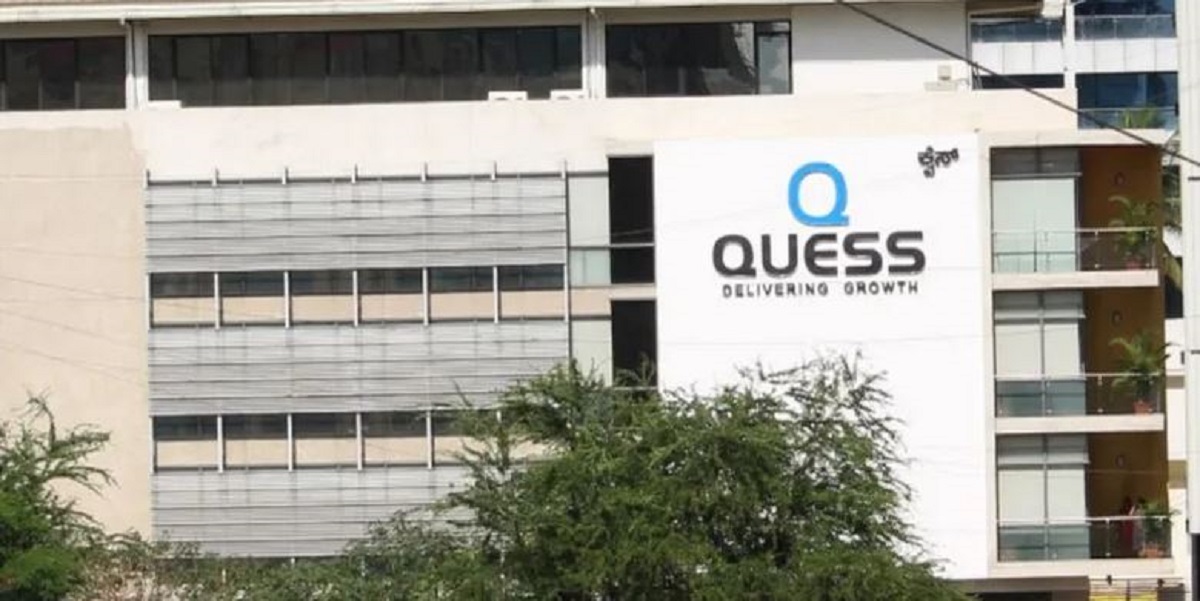Quess Corp, India’s leading business services provider, announced the launch of its new healthcare vertical to address the shortage of healthcare professionals.
The vertical aims to provide trained healthcare manpower, home care solutions, and end-to-end hospital management services by identifying, training & upskilling healthcare professionals through a network of accredited medical training institutes, enabling quick & on-demand deployment.
Quess Corp has signed an MoU with the Association of Healthcare Providers (India) (AHPI), a not-for-profit representative body of healthcare providers, to evangelize formalization of training and staffing services for healthcare professionals and create a talent marketplace for private and public healthcare institutions.
The collaboration aspires to create a pipeline of trained paramedical and healthcare service professionals through a proposed hire-train-deploy model, besides building a digital pool of highly skilled, experienced, ready-to-hire doctors across India.
In addition to creating an organized demand and supply support service for healthcare manpower such as nurses, paramedics, doctors, phlebotomists, and lab technicians, the collaboration will also enable corporates to set up safer workspaces with adequate medical facilities, and to train candidates with endorsements from reputed domestic and international accreditations. Through this alliance, Quess Corp and AHPI plan to jointly work towards industry advocacy in critical areas of staffing and healthcare manpower management.
Dr Naresh Shetty, president, Quess Healthcare said, “In India, the healthcare segment faces dismaying challenges with an acute shortage of skilled manpower to the tune of six million paramedics today. We hope to bridge this gap and indisputably impact skill development and knowledge enhancement of the healthcare sector, which is the absolute need of the hour. Through tech-enabled skilling and access to a talent pool of trained professionals, we want to empower healthcare providers to cater to a wide public reach while providing access to quality healthcare for all.”
Dr Giridhar Gyani, director general, AHPI said “Improving the Indian healthcare system by expanding basic healthcare access to the larger community has been our long-standing commitment at AHPI. We are pleased to partner with Quess Corporation, the leading manpower service company, and believe that together, we can successfully redesign and advocate for the medical ecosystem with trained and qualified workforce.”
The floating traffic jams off ports. The multiplying costs of moving freight. The resulting shortages of goods. All of this had seemed like an unpleasant memory confined to the COVID-19 pandemic. But no such luck!
An ocean container capacity crunch has hit global trade just as peak shipping season starts, with freight spot rates up some 30% over the past few weeks and heading higher.
The first joint Europe-wide assessment of the drivers and impact of chemical pollution by the European Environment Agency (EEA) and the European Chemicals Agency (ECHA) has concluded that, despite progress in some areas, “more work is still needed to reduce the impact of harmful substances on human health and the environment”. Key findings include:
The severe drought which has forced the Panama Canal, one of the world’s busiest trade passages, to limit daily crossings could impact global supply chains during a period of high demand.
In the early hours of March 26, the Singapore-flagged ship Dali, loaded with 5,000 containers, slammed into Baltimore’s Francis Scott Key Bridge, causing the 1.6-mile (2.5-kilometer) bridge to collapse in a matter of seconds. The Dali was departing for Colombo when the disaster struck. Initial fears were confirmed that half a dozen people lost their lives in the accident.
The pharmaceutical and biotechnology industries constantly seek innovative methods to enhance product stability, solubility, bioavailability and ease of use. Within this realm, CDMOs [Contract Development & Manufacturing Organizations] serve as invaluable partners in the development and production of high-quality drug products.
Chinese New Year 2024 is upon us, disrupting logistics from Asia starting Feb 10th. This event is expected to impact global shipping until Feb 21. Freight rates from Asia has skyrocketed with rates to the US surging by 3.5X and Europe by 6X.
Amid ongoing Red Sea diversions by shipping giants like Maersk, CMA, logistics managers are globally confronting a dual challenge of escalating ocean and air freight prices alongside cargo disruptions due to
Why will CM be the next generation on quality?
